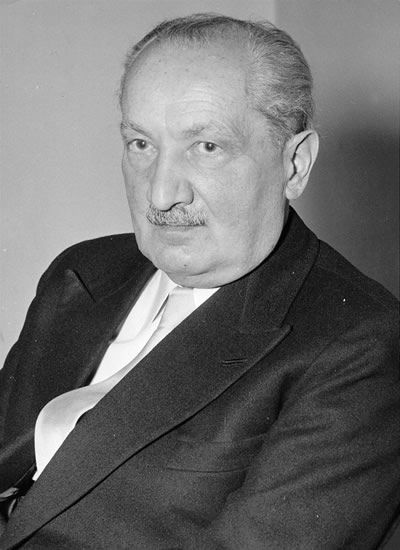For Bob Denham: k d lang and Roy Orbison, Crying
httpv://www.youtube.com/watch?v=c-EiKPrAOHA
After the jump, k d singing Leonard Cohen’s Hallelujah
For Bob Denham: k d lang and Roy Orbison, Crying
httpv://www.youtube.com/watch?v=c-EiKPrAOHA
After the jump, k d singing Leonard Cohen’s Hallelujah
Victoria College Chapel
Bob Denham has provided us with two new additions to the Denham Library.
The first is class notes for Frye’s course on Milton, 1953 – 1954. This is the eighth set of class notes to be added to the Library. Bob jokes that soon enough Frye scholars will in effect be able to attend Frye’s classes without registering or paying tuition.
The second is a previously unpublished set of notes on the Victoria College chapel windows, perhaps intended for a lecture or a sermon. This is most definitely very rare Frygiana. Take a look.
We are also very pleased to tell you that our new administrator, Clayton Chrusch, is slowly but surely making his way through the Denham Library collection to correct minor formatting problems that arise when translating from one text software to another.

Martin Heidegger
In response to Nicholas Graham’s posts here and here
Aligning Frye’ conception of culture with such anti-humanistic, anti-liberal, and anti-democratic thinkers as Strauss, Voeglin, Lonergan, and Heidegger, is highly questionable and requires further elaboration to be credible. Frye’s conception of the function of literature and criticism in society is antithetical to the conservative and reactionary views of any of these thinkers, all of whom argued for a transcendental norm against which any merely human creative or imaginative power is to be invidiously measured. They are all anxious defenders of an authoritarian and anti-democratic myth of concern against the myth of freedom–proponents of the great butter-slide theory of Western culture, in which it all runs downhill after Plato or Aquinas.
Frye believed strongly that the function of literature lay in its social vision, the idea of a free society, even if that idea “can never be formulated, much less established as a society.” Frye adopted and gave added strength throughout his writings to Arnold’s
axiom that ‘culture seeks to do away with classes.’ The ethical purpose of a liberal educaton is to liberate, which con only mean to make one capable of conceiving of society as free, classless, and urbane . . . No discussion of beauty can confine itself to the formal relations of the isolated work of art; it must consider, too, the pariticpation of the work of art in the vision of the goal of social effort, the idea of complete and classless civilization (348).
It is true that Frye makes use of a number of concepts or formulations of Heidegger’s (poetry as dwelling, language uses man), but the use is selective and limited and the idea in question invariably undergoes a transmutation that emancipates the idea from Heidegger’s philosophy and makes it Frye’s. He does the same with some of Derrida’s terms, and with countless other thinkers and writers with whom he otherwise shares very little. In his social and political views, the one thinker he does share a good deal with is the great John Stuart Mill. For Frye, literature and imaginative culture as a whole accomplish what Mill envisioned as necessary in the progress to a fully mature society: they liberalize, democratize, individualize. This is about as far away from Heidegger as one can get. For Heidegger, human beings are simply the historical medium of consciousness through which Being reveals or conceals itself. It was Heidgger’s contempt for modernity and for democratic and liberal views that led him to the delusion–if it were not simple opportunism–that the Nazis were Germany’s, and das Sein‘s, salvation from the horrors of liberal democracy. For a good discussion of Heidegger’s relationship to the Nazis, see the Wikipedia article “Heidegger and Nazism.”
Responding to Jonathan Allan
Thank you so much for your post, Jonathan.
This may be tangential to your intent, but this post revealed to me why I am wrong to insist so strongly on the word convention instead of archetype. Literature and the verbal imagination develop not in a single society but in many relatively or absolutely separate societies at once. Conventions are rooted in their culture of origin and thus bound to their society and to connecting societies, but archetypes are rooted in the nature of human beings and the human verbal imagination, and therefore are not restricted by social boundaries. Archetypes certainly become conventions, but they clearly have roots that are deeper than the particularity of the society they manifest in.
I suppose the same could be said for many kinds of conventions, not just literary. It is certainly possible to have purely arbitrary conventions (like weights and measures), but human nature often plays a role in forming conventions. And so it is not just that archetypes often become literary conventions, but that even non-literary conventions are, in a sense, archetypal.
Is it possible that the claim that literature is archetypal boils down to the claim that the conventions of literature are rooted in human nature? I suppose Frye would complain that such a formulation reduces literature to something non-literary. Perhaps what you need to add is the recognition that human nature is not static but actually develops and grows in contact with civilization and culture, so that there is a symbiotic relationship that develops between human nature and the verbal imagination, both growing together. And so the archetypal nature of literature is really its permanent bilateral relationship with human nature.
In any case, I think we should actually encourage archetype spotting. Obviously such projects can’t be the end of criticism, but they are a quantum leap ahead of archetype ignoring.